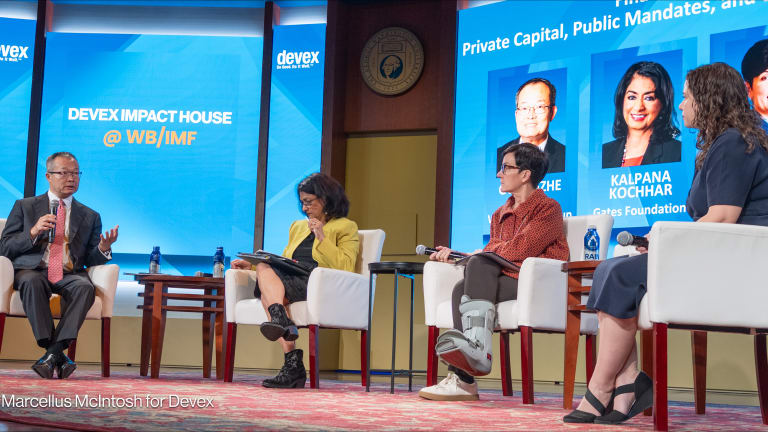Global development leaders and officials from partner countries say they want a data revolution, but while many institutions have signed memoranda of understanding and agreed to cooperate on a movement to compile “big data,” tensions persist around who can — or should — lead such a movement.
The international community and national governments need to do a better job of producing, using and disseminating data about poverty. That was the message from Thursday’s panel discussion at the World Bank spring meetings focused on efforts by donors and developing nations to plug data gaps around poverty to aid pro-poor policy decisions.
But on the sidelines of the discussion, some attendees wondered what the appropriate role for huge international institutions and national governments should be in building a more comprehensive web of accessible demographic, economic and health data.
This story is forDevex Promembers
Unlock this story now with a 15-day free trial of Devex Pro.
With a Devex Pro subscription you'll get access to deeper analysis and exclusive insights from our reporters and analysts.
Start my free trialRequest a group subscription







